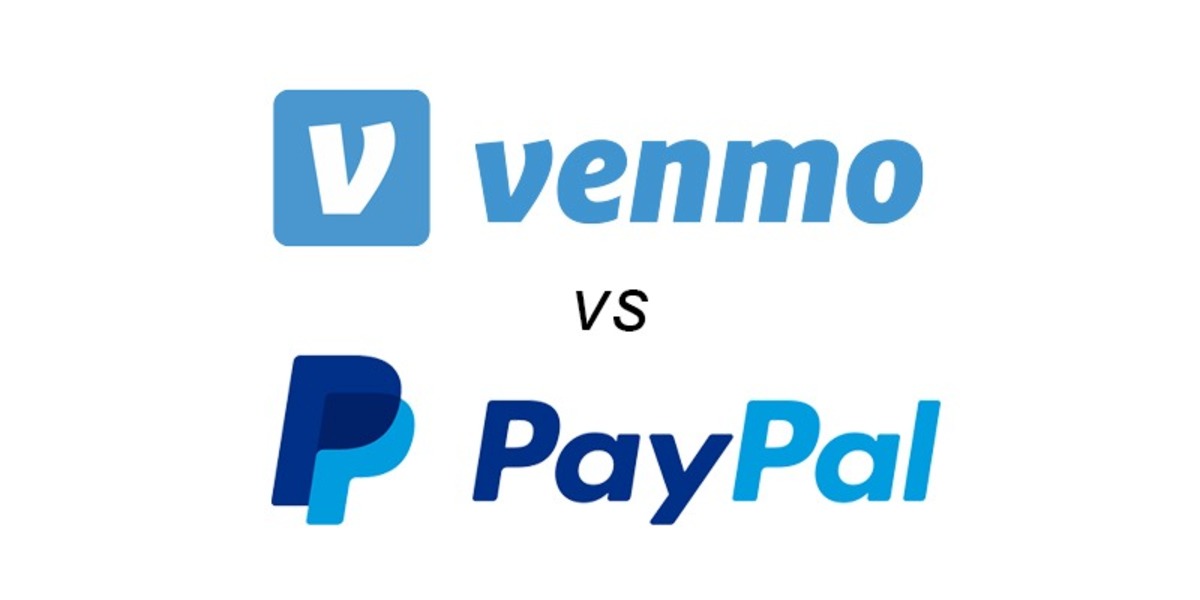Venmo Fees for Sending Money
Venmo, the popular peer-to-peer payment app, offers a convenient way to send money to friends, family, or even businesses. While sending money using Venmo is typically free, there are certain scenarios where fees may apply. Let’s take a closer look at the fees associated with sending money through Venmo.
1. Standard Transfers: Sending money from your Venmo balance, bank account, or debit card is typically free. Venmo imposes no fees for standard transfers, making it a cost-effective option for most users. You can send money to anyone with a Venmo account by simply linking your bank account or debit card and initiating the transfer.
2. Credit Card Transfers: Venmo allows you to send money using your credit card, but keep in mind that there is a fee associated with this option. When sending money with a credit card, Venmo charges a 3% fee on the total transaction amount. This fee is in place to cover the processing fees imposed by credit card companies. If you prefer to avoid this fee, it’s best to use your Venmo balance, bank account, or debit card for transfers.
3. Instant Transfers: If you’re in a hurry and need to send money instantly, Venmo offers an expedited transfer option. However, this convenience comes at a cost. Venmo charges a 1% fee on the total transaction amount for instant transfers. Instant transfers allow you to access the funds immediately instead of waiting for the standard transfer timeframe, which can take one to three business days.
4. International Transfers: Currently, Venmo only supports payments within the United States. International transfers are not available through the app, which means you cannot send money to individuals or businesses located outside the country.
5. Business Payments: If you’re using Venmo for business purposes, such as collecting payments from customers, Venmo offers a business account option. Business accounts come with additional features and may have separate fees associated with specific transactions. It’s important to review Venmo’s business account terms and conditions to understand the applicable fees and features.
In summary, Venmo provides a convenient and cost-effective way to send money to individuals and businesses. Most transfers are free, but fees may apply in certain situations, such as credit card transfers or instant transfers. It’s important to be aware of these fees and choose the most suitable payment method based on your needs and preferences.
Venmo Fees for Receiving Money
Venmo, the popular peer-to-peer payment app, not only allows you to send money to others, but also provides a seamless process for receiving payments. When it comes to receiving money through Venmo, you can typically enjoy the convenience of no fees. However, there are some instances where fees may apply. Let’s explore the fees associated with receiving money via Venmo.
1. Standard Transfers: When someone sends you money through Venmo using their Venmo balance, bank account, or debit card, there are no fees imposed on the receiver’s end. This means that you can receive money from friends, family, or other Venmo users without having to pay any charges.
2. Credit Card Transfers: While users can send money using their credit cards on Venmo, the sender may incur a fee for this type of transaction. As the receiver, you won’t be charged any fees for receiving money sent via credit card. However, it’s worth noting that the sender may be subjected to a 3% fee on the total transaction amount to cover the processing fees. It’s a good idea to inform the sender beforehand regarding the potential fee so they can make an informed decision.
3. Instant Transfers: Venmo allows users to receive instant transfers, which provide immediate access to the received funds. If you choose to cash out the money you receive through an instant transfer, a fee of 1% of the total transaction amount will be applied. However, if you opt for a standard transfer to your bank account, there are no additional fees. The availability of instant transfers may vary based on factors such as account history and verification status.
4. Business Payments: Venmo also offers business accounts for individuals or businesses who receive payments for goods or services. There may be separate fees associated with certain business transactions. If you are using Venmo for business purposes, it’s essential to review Venmo’s business account terms and conditions to have a clear understanding of the applicable fees.
It’s important to note that as of now, Venmo only supports payments within the United States. International transfers or receiving money from individuals or businesses outside the country are not possible through Venmo.
In summary, receiving money through Venmo is typically free, making it an attractive option for people looking for a hassle-free way to receive payments. While credit card transfers may incur fees for the sender, the receiver doesn’t have to worry about any charges. Instant transfers have a 1% fee if you choose to cash out immediately, but standard transfers are fee-free. Keep in mind the limitations on international transfers and explore Venmo’s business account features and fees if you are using Venmo for business purposes.
Venmo Fees for Instant Transfer
Venmo offers an instant transfer feature that allows users to access their funds immediately, rather than waiting for the usual processing time of one to three business days for standard transfers. While this option offers convenience and speed, there are fees associated with Venmo’s instant transfer service. Let’s take a closer look at the fees for instant transfers.
1. Instant Transfer Fee: When choosing the instant transfer option to access your funds right away, Venmo charges a fee of 1% of the total transaction amount. For example, if you are transferring $100, the fee would amount to $1. This fee is deducted from the transfer amount, meaning you will receive the remaining balance after deducting the fee. The fee is in place to cover the costs of processing the transaction immediately and providing the convenience of instant access to the funds.
2. Eligibility and Verification: It’s important to note that not all Venmo users may be eligible for instant transfers. Factors such as account history, verification status, and other security considerations may impact your eligibility. Venmo requires users to link a Visa or Mastercard debit card issued in the United States to use the instant transfer feature. Additionally, you may need to provide additional information for verification purposes. It’s recommended to check your Venmo account to see if you are eligible for instant transfers.
3. Transaction Limit: Venmo imposes a transaction limit for instant transfers. As of the time of writing, the limit is set at $10,000 per transfer. If you need to transfer more than the set limit, you may need to consider alternative options or split the transaction into multiple transfers.
4. Timing: Instant transfers allow you to access your funds immediately, providing a swift and convenient way to receive money. However, it’s important to consider the timing of transfers, as certain factors may impact the availability of instant transfers. For example, transfers initiated outside of business hours or on weekends may take longer to process. Venmo provides information on the estimated arrival time for instant transfers, so you can plan accordingly.
While the instant transfer feature is a convenient option for those who require immediate access to their funds, it’s important to weigh the cost of the 1% fee against the urgency of the transfer. If time is of the essence, the fee may be worth it. However, if you can wait for the standard transfer timeframe of one to three business days, there are no fees associated with those transfers.
In summary, Venmo’s instant transfer feature offers users the ability to access funds immediately. However, there is a fee of 1% of the transaction amount associated with this service. Eligibility and verification requirements apply, and there is a set transaction limit of $10,000 per transfer. While the convenience of instant access may be valuable, it’s important to consider the timing and cost of the fee when deciding whether to opt for this feature.
Venmo Fees for Businesses
Venmo, the popular peer-to-peer payment app, not only caters to individual users but also provides options for businesses to accept payments. If you are considering using Venmo for your business transactions, it’s important to understand the fees associated with using Venmo as a business.
1. Business Account: Venmo offers a business account option that allows businesses to receive payments from their customers. Setting up a business account requires providing additional information about your business and may entail verification processes. By creating a business account, you gain access to features tailored to meet the needs of businesses, including the ability to accept payments for goods and services.
2. Transaction Fees: Venmo charges a fee of 1.9% + $0.10 for each transaction made through a business account. This fee is applicable to transactions where a customer pays using a credit card or a debit card that they have not linked to their Venmo account. The fee covers the cost associated with processing the transaction securely.
3. Receiving Payments: When customers make payments to your business through Venmo, there are no fees imposed on your end as the receiver. The transaction fees mentioned above are borne by the customer making the payment, ensuring that you receive the full amount for your goods or services.
4. Withdrawal Fees: If you choose to withdraw the funds from your business account to your bank account, there are no additional fees imposed by Venmo. However, keep in mind that your bank may have its own set of fees for receiving these transfers, so it’s advisable to check with your bank to understand any potential charges.
5. Other Features and Advantages for Businesses: Venmo’s business accounts provide additional features such as the ability to integrate Venmo as a payment option in your website or app, generate customized payment links, and access transaction details and reports for better business management. These features can help streamline your business transactions and enhance the overall payment experience for your customers.
It’s important to note that Venmo’s business account fees and features may be subject to change, so it’s advisable to review the most up-to-date information on Venmo’s official website or contact their customer support for any specific inquiries.
In summary, Venmo offers businesses the convenience of accepting payments through its platform. While transaction fees are applicable to credit card or non-linked debit card payments made by customers, there are no fees imposed on the businesses receiving the payments. It’s essential to create a Venmo business account to access these features and benefits, and to stay informed about any updates or changes to Venmo’s business account fees and services.
Venmo Fees for Goods and Services
Venmo, the popular peer-to-peer payment app, not only allows users to send money to friends and family, but also provides a platform for buying and selling goods and services. If you are using Venmo for transactions related to goods or services, it’s important to understand the fees associated with these types of transactions.
1. Personal vs. Business Transactions: Venmo distinguishes between personal and business transactions. Personal transactions are those made between friends and family, where no goods or services are exchanged. These types of transactions are typically fee-free. On the other hand, business transactions involve buying and selling goods or services, and they may be subject to certain fees.
2. Transaction Fees: If you are selling goods or services through Venmo, you may be subject to transaction fees. Venmo charges a fee of 1.9% + $0.10 per transaction for business purchases. This fee is applicable when a customer pays for goods or services using a credit card or a debit card that they have not linked to their Venmo account. The fee covers the cost of processing the transaction securely.
3. Receiving Payments: As the seller of goods or services, you will receive the full amount for your transaction. Venmo deducts the transaction fees mentioned above from the customer’s payment, ensuring that you receive the agreed-upon amount without any additional fees on your end as the receiver.
4. Other Considerations: It’s important to note that while Venmo provides a platform for buying and selling goods and services, there may be certain limitations and regulations on what can be sold. It’s recommended to review Venmo’s terms of service and acceptable use policy to ensure compliance with their guidelines.
5. Security and Buyer Protection: Venmo has implemented security measures to protect buyers and sellers in transactions. However, it’s important to exercise caution and conduct transactions with trusted individuals or businesses. Venmo’s buyer protection policy may provide coverage for eligible purchases that do not meet the agreed-upon terms or were not delivered as expected. Familiarize yourself with the terms of Venmo’s buyer protection policy to understand the protections available to you as a buyer.
Remember, if you are conducting business transactions on Venmo, it’s crucial to provide accurate and detailed descriptions of the goods or services being sold, along with clear pricing and terms. This helps establish transparency and avoid any potential disputes or misunderstandings between the buyer and seller.
In summary, Venmo enables users to buy and sell goods and services with the convenience of its platform. While there are transaction fees associated with these types of transactions, sellers receive the agreed-upon amount without any additional fees. Ensure compliance with Venmo’s terms of service and guidelines when conducting business transactions, and familiarize yourself with Venmo’s buyer protection policy for added security and peace of mind.

























